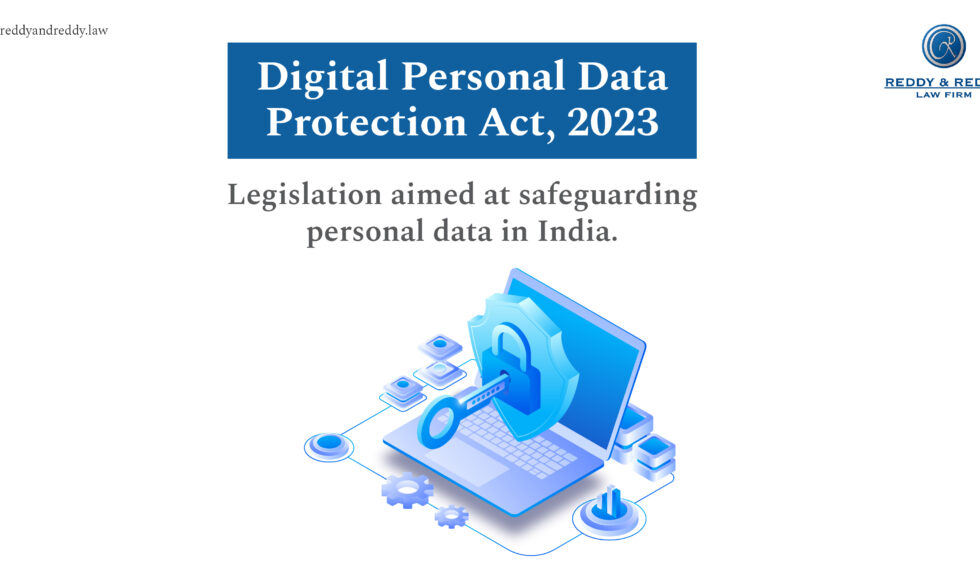India has recently introduced the Digital Personal Data Protection Act, of 2023, a groundbreaking legislation that aims to safeguard the personal data of individuals while facilitating the lawful processing of such data. As a law firm dedicated to staying abreast of the latest legal developments, we are excited to delve into the intricacies of this pivotal act and provide a comprehensive analysis for our esteemed clients and readers.
The Digital Personal Data Protection Act, of 2023, is a landmark effort by the Indian government to strike a balance between an individual’s right to protect their personal data and the need for organizations to process such data for legitimate purposes. At its core, the act seeks to establish a robust framework for the processing of digital personal data within the territory of India, as well as data processed outside the country in connection with activities related to offering goods or services to Indian data principals.
One of the key features of the act is the establishment of the Data Protection Board of India, an independent body tasked with overseeing and enforcing the provisions of the legislation. The Board wields significant powers, including the ability to inquire into personal data breaches, impose penalties, and issue directions to ensure compliance with the act.
The act outlines the obligations of data fiduciaries, entities that determine the purpose and means of processing personal data. These obligations encompass obtaining valid consent from data principals, implementing reasonable security safeguards to prevent data breaches, and adhering to principles of transparency and accountability. Moreover, the act introduces the concept of “Significant Data Fiduciaries,” which are subject to additional obligations, such as appointing a Data Protection Officer and conducting periodic Data Protection Impact Assessments.
Notably, the act recognizes the vulnerability of children and individuals with disabilities, imposing stringent requirements on data fiduciaries when processing their personal data. These measures include obtaining verifiable consent from parents or legal guardians and prohibiting tracking, behavioural monitoring, and targeted advertising directed at children.
Complementing the obligations of data fiduciaries, the act also enshrines the rights of data principals, the individuals to whom the personal data relates. These rights include the right to access information about their personal data, the right to correction and erasure of personal data, and the right to grievance redressal. Additionally, the act introduces the concept of “Consent Managers,” entities that facilitate the management and withdrawal of consent by data principals.
The act provides for a robust enforcement mechanism, empowering the Data Protection Board of India to impose significant monetary penalties for breaches of the act’s provisions. The penalties are proportionate to the nature and severity of the breach, ensuring that deterrence and compliance are effectively achieved.
Furthermore, the act establishes an appellate mechanism, allowing aggrieved parties to appeal orders or directions issued by the Board before the Telecom Disputes Settlement and Appellate Tribunal. This mechanism ensures due process and accountability in the implementation of the act.
While the act aims to provide a comprehensive framework for personal data protection, it also recognizes the need for flexibility and tailored approaches. Certain exemptions and exclusions are provided for specific scenarios, such as processing personal data for legal claims, judicial or regulatory functions, prevention of offences, and research or statistical purposes.
As with any legislation of this magnitude, the Digital Personal Data Protection Act, of 2023, is not without its challenges and potential areas of concern. Implementation and enforcement will undoubtedly require significant resources and coordination among various stakeholders, including the government, data fiduciaries, and data principals. Additionally, striking the right balance between data protection and facilitating legitimate business activities may require ongoing refinement and adaptation.
In conclusion, the Digital Personal Data Protection Act, 2023, represents a significant stride towards establishing a comprehensive legal framework for personal data protection in India. By recognizing the importance of individual privacy while acknowledging the need for data processing, the act endeavours to create an environment that fosters trust and responsible data handling practices. As legal practitioners, it is our responsibility to provide guidance and ensure compliance with this groundbreaking legislation, enabling our clients to navigate the complexities of the digital age while respecting the fundamental rights of individuals.

